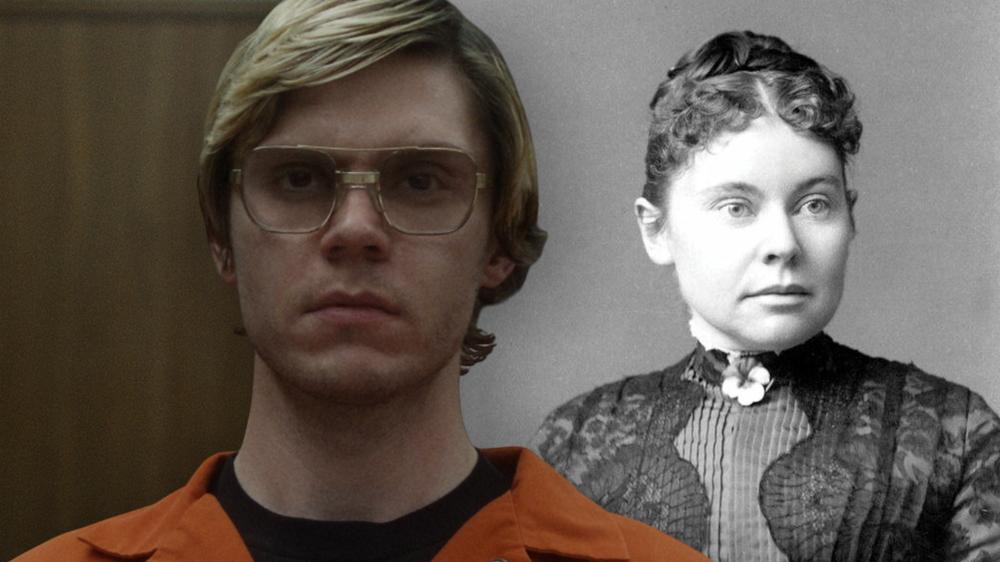Monster Season 4 is reportedly in the works, and while Netflix hasn’t officially confirmed the details, the case at its center is already making headlines. This time, it’s not another serial killer or sibling story – it’s the notorious case of Lizzie Borden.
Ryan Murphy’s anthology began with Dahmer – Monster: The Jeffrey Dahmer Story, a series that generated as much views as it did backlash. Families of victims spoke out, viewers debated its ethics, but one thing was clear: it got people talking.
Last year’s Monsters: The Lyle and Erik Menendez Story was just as divisive. Critics called it exploitative, and even the real-life Erik denounced the show. Still, it remains one of Netflix’s most successful titles, with Season 3 now in production and a Season 4 said to be on the way.
The upcoming third chapter will tackle the case of Ed Gein, a man whose gruesome crimes inspired Psycho and The Texas Chain Saw Massacre. While that choice may raise red flags, hopefully Season 4 on Lizzie Borden can offer something entirely new.
Monster Season 4 could fix Netflix show’s biggest mistake
If the reports are true and Monster Season 4 is indeed about Lizzie Borden, then this might be the first real sign that Murphy and Netflix are rethinking their approach.
Lizzie’s case isn’t built on shock and gore (although there is some of that) – it’s built on nuance. It’s a case full of question marks, rooted in gender, class, and power in late 19th century America.
Unlike Dahmer or Gein, there’s no known string of victims or police camera confessionals. Just a woman, an axe, and a divided jury.
A period piece like this offers something Monster has yet to fully explore: the way old societal norms, especially around women, can influence how crimes are perceived and prosecuted. If handled right, Season 4 could examine these themes while reflecting on an issue the Netflix show has been accused of in the past: sensationalism.
Previous chapters have been called exploitative because they lean too heavily into violence and sex (the incest implications from Season 2 come to mind). However, Borden’s case demands subtlety. It’s not about what she did, but what we think she did, and why that perception has shifted over time.
That’s not to totally disparage the show up until this point. There’s a reason it dominates charts and stirs so much cultural conversation. But it’s also fair to say that in certain ways, it revives traits of true crime’s trashier phase, where shock is prioritized over substance.
The Lizzie Borden case is more than a rhyme
Ask anyone about the case, and they’ll probably quote the infamous playground chant: “Lizzie Borden took an axe, and gave her mother 40 whacks…”
It’s catchy but inaccurate. The real Lizzie was accused, not convicted, of killing her father and stepmother with a hatchet in 1892. The murder shocked Fall River, Massachusetts, not just because of its brutality, but because to many, Lizzie was an unlikely suspect – a female churchgoer from a wealthy family.
Some historians argue that part of the jury’s reluctance to convict came down to the belief that women were not capable of committing such horrific crimes, reflecting viewpoints at that time.
The issue of nativism also comes into play. Lizzie was a white, native-born Protestant who came from an upper-middle-class family, which may have swayed officials’ opinion in her favor at a time when nativist attitudes were common.
This is evident when you look back at the police’s reaction to the murders. As highlighted by the Smithsonian, “Police initially considered the killings the work of a man, probably a ‘foreigner.’ Within a few hours of the murders, they arrested a suspect: an innocent Portuguese immigrant from the town’s new diaspora of European workers.”
Whether she did commit the crime or not is still up for debate, as is the motive – some say it was due to her inheritance, others suggest she was a victim of abuse (or both).
Over the years, her story has been reimagined many times. Christina Ricci played a gothic, scheming iteration in Lizzie Borden Took an Axe, while Chloë Sevigny’s Lizzie offered a more restrained, psychological take.
Monster has the opportunity to do something different, by resisting the urge to answer the unanswerable. The show doesn’t need to prove Lizzie’s innocence or guilt. Instead of painting her as a villain or a victim, Monster could embrace the grey area.
By diving into the class and gender politics of the time, it could reveal how public opinion, the justice system, and the media worked together to shape the case. More significantly, it’s a chance for Monster to tell a true crime story without turning it into entertainment at someone’s expense.

 You don’t need to watch Superman’s post-credits scenes and that’s a good thing
You don’t need to watch Superman’s post-credits scenes and that’s a good thing